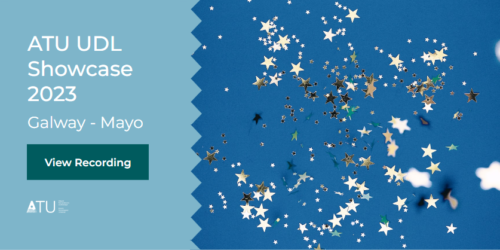Home » Administration » Academic Affairs and Registrar » UDL » Conferences, Events & Projects
Conferences, Events & Projects
UDL Conference 2023
UDL Conference 2022
UDL Conference 2021
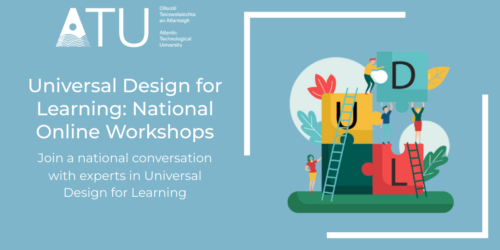
Workshop One:
Workshop Three:
PATH 4 Initiatives
PATH 4 is an HEA-funded project to support targeted student groups through the implementation of UDL.
ATU is involved in several local, regional, and national projects that are aligned with PATH 4 funding:
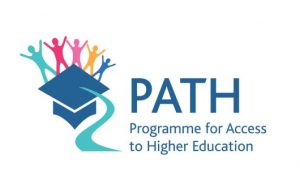
This is a collaborative project funded under the PATH 4 Initiative led by ATU in partnership with MTU and in collaboration with IADT, RCSI, MIC, UL, MU, UCC, UG, MSLETB and Kerry ETB. The project leads are Laura Hegarty and Mairead McCann from ATU and Margaret Finch and Dr Aileen Kennedy from MTU.
Aims:
The project aims to support leaders in tertiary education to understand how they can strategically implement universal design by addressing a gap in the provision of continuing professional development for this cohort. Initial scoping meetings facilitated by AHEAD in 2022 raised questions such as:
- How aware are leaders of UD and its implications for strategy and policy?
- Do they understand the vital role they must play in strategically embedding a systematic cultural approach to universal design across all systems and processes in their institutions?
- Have they had opportunities to share learning from their institutions?
Outputs
This project is seeking to address these questions by bringing leaders together to share developmental experiences and to achieve key objectives:
- Create a short self-paced course addressing the fundamentals of UD and its implications for strategy and policy.
- A call to action to identify their own institutions, UD practices, challenges and opportunities.
- Facilitating the leaders to reconvene in June 2023 symposium to share and contribute directly to the national debates and charter development.
- Action research approach will be taken in this project resulting in an evaluating.
The project group has created the initial unit of the CPD and has conducted a pilot study with fifty participants. The Project leads have also facilitated two workshops at the ATU – MTU UDL Conference on 1st June and at the UDL Symposium in Maynooth University on the 9th June and the wider group is collating the data gathered to inform the course content development. The project team is working with an instructional design team in MTU and the aim is to complete the course creation by December and to pilot the full course in advance of a formal launch to be aligned with the AHEAD Conference 2024.
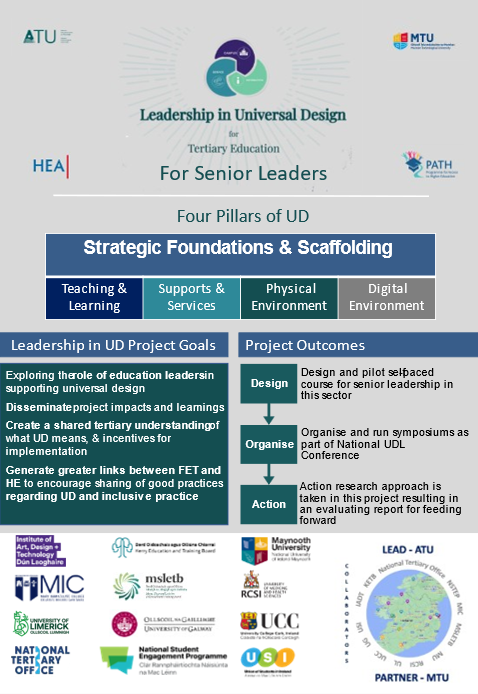
Image poster capturing a summary of the project
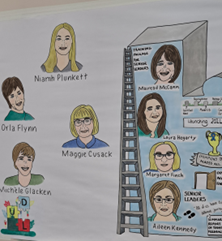
Image is a graphic drawing of the project team leads created by Tamsin Cavaleiro at the ATU-MTU UDL Conference 1st June
This Digital Badge course, hosted by the National Forum for the Enhancement of Teaching & Learning, will provide participants with a strong introduction to the Universal Design for Learning Framework and give them the opportunity to implement UDL approaches within the teaching activities they are currently undertaking. Thousands of higher education professionals from across Ireland have participated in past years, including hundreds from ATU! We will host roll-outs throughout the academic year, so stay tuned for news of our next roll-out and join the growing Irish UDL community!
Testimonials from past participants:
· “The process was very helpful. I feel all lecturers should avail of this and change all their modules over [using] UDL principles. It benefits not only the students but the lecturers too.”
· “Great experience and chance to discuss ideas with a colleague…[it] has made me reflect on not only the delivery but the whole student experience.”
· “Students engaged more: they expressed themselves without fear and without a feeling that they could give the wrong answer. They felt included and, most importantly, they felt equal.”
- ATU programme inclusivity audits
- National UDL workshops
- Designing a programme for students with intellectual disabilities at ATU
- ATU physical infrastructure improvements
- Partnerships with regional ETBs and FETs
The UDL Digital Badge
This Digital Badge course, hosted by the National Forum for the Enhancement of Teaching & Learning, will provide participants with a strong introduction to the Universal Design for Learning Framework and give them the opportunity to implement UDL approaches within the teaching activities they are currently undertaking. Thousands of higher education professionals from across Ireland have participated in past years, including hundreds from ATU! We will host roll-outs throughout the academic year, so stay tuned for news of our next roll-out and join the growing Irish UDL community!
Testimonials from past participants:
· “The process was very helpful. I feel all lecturers should avail of this and change all their modules over [using] UDL principles. It benefits not only the students but the lecturers too.”
· “Great experience and chance to discuss ideas with a colleague…[it] has made me reflect on not only the delivery but the whole student experience.”
· “Students engaged more: they expressed themselves without fear and without a feeling that they could give the wrong answer. They felt included and, most importantly, they felt equ
